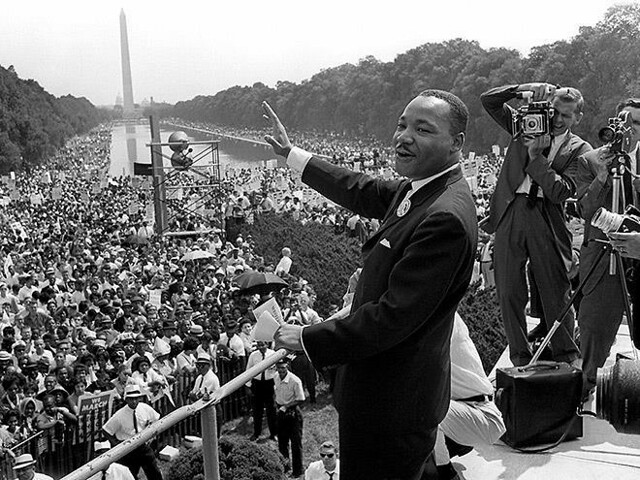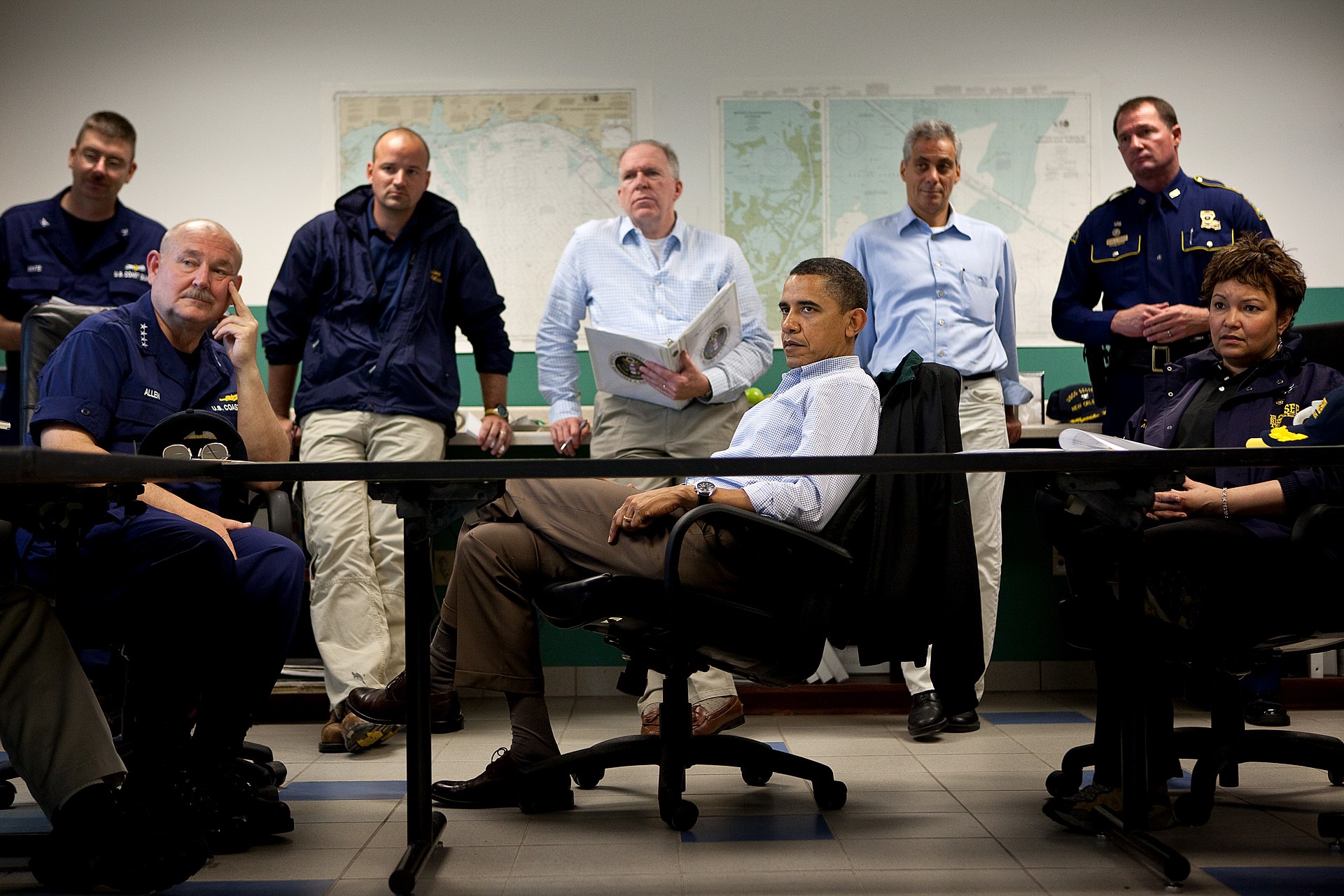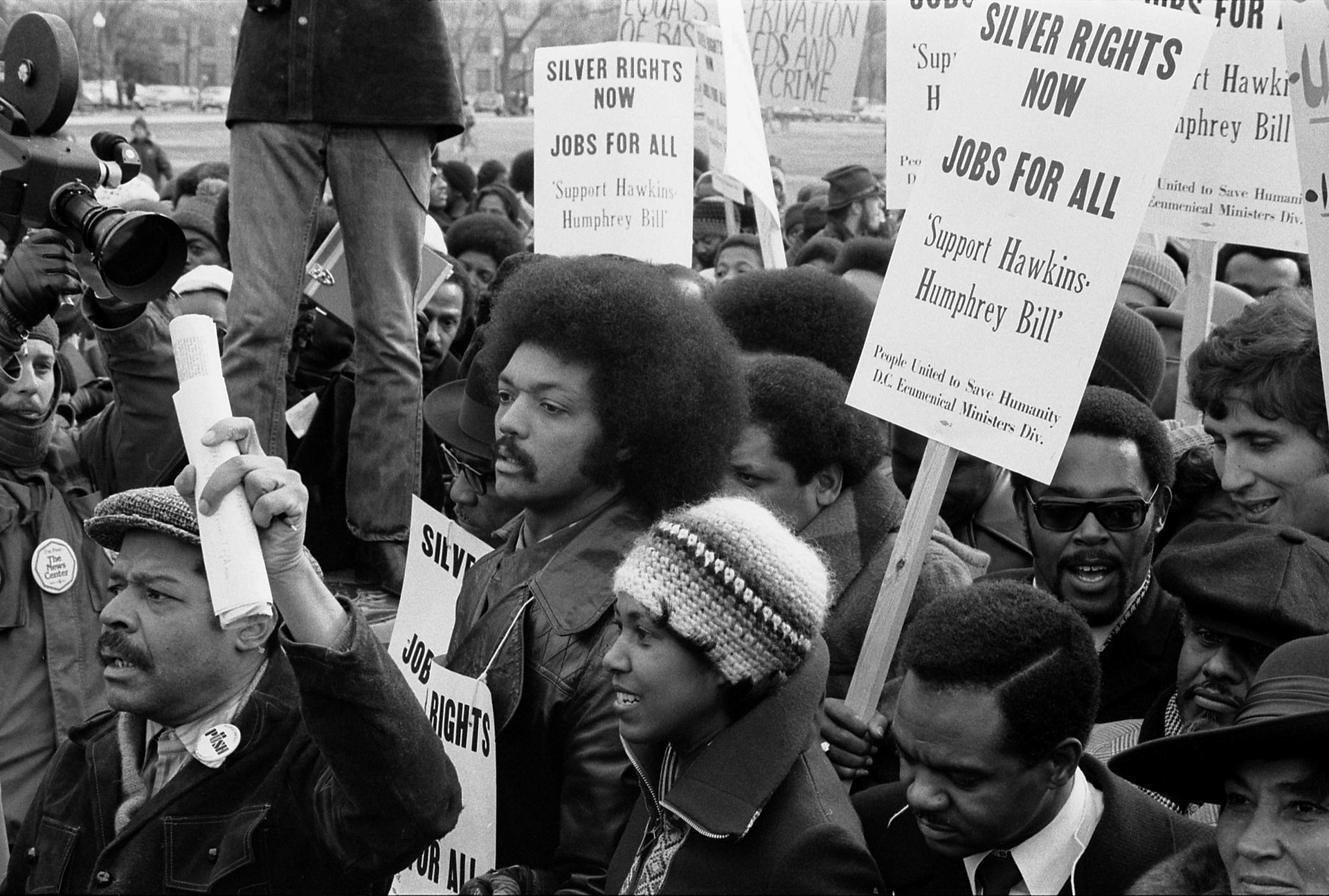What would Martin Luther King Jr.—had he been alive today—thought of our latest president’s oratory?
-
Spring 2009
Volume59Issue1

Standing in the cold with 2 million others near the Capitol as Barack Obama delivered his inaugural address, I couldn’t help but recall another crowded day 45 years earlier, when I heard Martin Luther King Jr.’s “I Have a Dream” oration at the other end of the National Mall, in front of the Lincoln Memorial during the March on Washington for Jobs and Freedom.
A 19-year-old college student at the time, I was moved by his words but had no idea that his speech would soon rank as one of the greatest oratories in American history. My view of King and his rhetoric would be profoundly affected in unexpected ways by the changes the march had set in motion. I wondered how Obama’s speech might affect the lives of the many young people that I saw in the crowd at the Capitol but appreciated how difficult it is to predict the enduring impact of even the most moving oratory. Nonetheless, my study of King, especially since becoming editor of his papers, has convinced me that King’s and Obama’s distinctive oratorical qualities are related in important ways. Indeed, the new president seems to personify King’s dream that his children would live in a nation capable of judging people on the basis of character rather than skin color.
In 1963 King’s dream seemed a fantasy. The continuing reality of racial discrimination and segregation made me dubious about King’s visionary rhetoric, his faith in American ideals, and his mode of charismatic leadership. King critics such as Stokely Carmichael, Bob Moses, and other organizers of the Student Nonviolent Coordinating Committee (SNCC) had convinced me that black advancement would come not through the guidance of national civil rights leaders such as King but through militant grassroots activism. The landmark civil rights legislation that followed the march failed to transform Mississippi “into an oasis of freedom and justice,” as King had envisioned. During the era of Black Power and the Black Arts Movement, the idea that Americans of all races one day would join hands and sing, “Free at last, free at last,” seemed far-fetched. Malcolm X and the Black Power firebrands pushed King from prominence as they revived an alternative black nationalist oratorical tradition that offered a compelling explanation of the escalating racial violence and police repression of the late 1960s. During the last year of his life, King himself spoke of his dream turning into a nightmare; in his 1967 antiwar speech at New York’s Riverside Church, he labeled the American government as “the greatest purveyor of violence in the world today.”

As black militancy and white repression spawned ever more deadly violence during the late 1960s and early 1970s, I gradually came to understand the wisdom of King’s message of nonviolence and reconciliation. Although I remained skeptical of the notion that great oratory in itself could change the course of history I began to see that King understood the radical potential of the traditional religious and political ideals that many Americans shared and that his commitment to social justice was at least as firm as that of his black critics. While I regretted that King’s provocative speeches of his last years earned little of the attention lavished on the final passages of his “Dream” oration, I did see that King’s vision of a transformed nation was, for Americans of all races, “deeply rooted in the American dream.”
Especially after 1985, when Coretta Scott King asked me to direct the King Papers Project (now part of Stanford’s King Institute), I began to see the speech not as an isolated instance of skilled oratory, but rather as a remarkably cogent contribution to a continuing dialogue about America’s destiny King spoke not only to those gathered but also to “the architects of our republic” who had written “the magnificent words of the Constitution and the Declaration of Independence” and thereby signed “a promissory note to which every American was to fall heir.”
Of all of King’s many speeches, the address at the March on Washington best represented the transformative ability of oratory to infuse familiar ideas with new meanings. In his 16-minute speech, King linked the aspirations of African Americans to the widely shared but unrealized ideals of the American republic. Although he prepared much of the speech in the days preceding the march, he impulsively extended his remarks to incorporate ideas drawn from almost two centuries of American black-white relations, hearkening back to Thomas Jefferson and the Founding Fathers who spoke of “inalienable rights” while holding slaves. King’s concluding evocation of his dream was extemporaneous, but he had been preparing these remarks for most of his adult life.
Like many 19th-century orators who often borrowed from one another, King adopted his conclusion from Chicago preacher Archibald Carey’s address at the 1952 Republican convention, who in turn adapted the patriotic song, “My Country, ‘Tis of Thee.” As he reached his climax, Carey had exhorted “from every mountain side, let freedom ring. Not only from the Green Mountains and the White Mountains of Vermont and New Hampshire; not only from the Catskills of New York; but from the Ozarks in Arkansas, from the Stone Mountain in Georgia, from the Great Smokies of Tennessee and from the Blue Ridge Mountains of Virginia.”
By the time King spoke in St. Louis in 1957, Carey’s refrain had become part of his vast memorized oratorical repertory: “As I heard a great orator say some time ago,” King remarked, “freedom must ring from every mountainside.” Continually improving on Carey’s use of the mountain metaphor, King was ready at the 1963 March to supplement his dream by drawing upon a key element of the nation’s heritage. “From every mountain side, let freedom ring,” King said, before moving to his powerful conclusion: “And when this happens . . . we will be able to speed up that day when all of God’s children ... will be able to join hands and sing in the words of the old Negro spiritual—‘Free at last! Free at Last! Thank God Almighty, we are free at last!”
The genius of King’s “I Have a Dream” speech lay not in his originality but in the way he expressed ideas better than those from whom he borrowed. In turn his words have informed the oratory of subsequent generations of American political leaders. Only two years old when King delivered his speech at the Washington march, Obama has often acknowledged that King inspired him. In his autobiography, he recalled his mother exposing him to “the speeches of Dr. King.” Later, as a senator, he would sometimes visit the Lincoln Memorial and “look out over the Reflecting Pool, imagining the crowd stilled by Dr. King’s mighty cadence.”
Obama has also felt the pull of African American politicians such as Andrew Young, John Lewis, and Jesse Jackson—King associates who launched successful political careers during a conservative political era by adapting King’s idealism and appealing to white as well as black voters. While Obama has distanced himself from Jackson—and to a lesser extent from other nationally prominent black politicians whose worldviews were shaped by the mass protests against the Jim Crow system—it was Jackson’s 1984 and 1988 presidential campaigns that demonstrated the effectiveness of moving beyond calls for black mobilization toward appeals that would resonate with a substantial minority of white voters. I stood behind Jackson when he voiced his stunning evocation of the American “rainbow” at the 1984 Democratic National Convention in San Francisco: “Our flag is red, white, and blue, but our nation is a rainbow—red, yellow, brown, black, and white—and we’re all precious in God’s sight.” Jackson’s presidential candidacy was undermined by concerns about his links to Louis Farrakhan, but 20 years later Obama would burst onto the national political scene with a similar transracial appeal at the 2004 Democratic National Convention in Boston: “There’s not a black America and white America and Latino America and Asian America; there’s the United States of America,” he said.

Jackson’s speech, which set the stage for his even more successful 1988 presidential campaign, was a precursor for Obama’s “race speech,” which he delivered in Philadelphia in March 2008 to defuse the controversy over the inflammatory sermons of his former pastor, Rev. Jeremiah Wright. Although Obama’s speech in Philadelphia elicited far less immediate enthusiasm than his later acceptance speech at the Democratic National Convention, it may well be remembered as his most original, provocative, and consequential pre-presidential speech. It would prove as decisive for Obama as the 1860 Cooper Union speech on slavery was to Abraham Lincoln, strengthening Obama’s public image as a candidate who not only understood America’s racial divisions but, like Lincoln, seemed capable of bridging them by linking his views to traditional American ideals. Speaking at Philadelphia’s Constitution Center in March 2008, he insisted that the Constitution “had at its very core the ideal of equal citizenship under the law; a Constitution that promised its people liberty, and justice, and a union that could be and should be perfected over time.”
Obama is hardly alone among American politicians in his use of King quotes, yet his connection to the oratory of the slain civil rights leader goes deeper. He shares the historical awareness that enabled King to address contemporary issues in the context of the timeless, shared ideals of all Americans. Although King’s formative experiences in black Atlanta differed markedly from Obama’s more exotic childhood, both men recognized that the destiny of black Americans was inextricably entwined with that of other Americans.
Both participated in a continuing oratorical dialogue about the American dream of a diverse nation unified by its traditional democratic, egalitarian ideals. Both leaders appreciated the crucial importance of the Declaration of Independence and the Constitution as sources of guidance in the task of building “a more perfect union.” And each drew rhetorical inspiration from Abraham Lincoln—the president who most cogently expressed the nation’s struggle to unify itself on the basis of its traditional ideals.
THE EBENEZER BAPTIST SERMON
Obama’s indebtedness to King became clear to me in January 2008, two months before the Philadelphia speech, when I heard him preach the King Holiday sermon at Ebenezer Baptist, the Atlanta church where King had once served as his father’s co-pastor. Speaking to a predominantly black audience, Obama provided many reminders of King’s ability to fitse religious inspiration with political insight; yet he simultaneously set himself apart from King’s generation of black leaders. Embodying a new style of visionary leadership, Obama did not speak as a black Moses mobilizing African Americans to combat racial oppression. Instead he invoked the story of Joshua’s conquest of Jericho in urging black Americans to support his quest for transracial unity: “the great need of this hour, not because it sounds pleasant or because it makes us feel good, but because it’s the only way we can overcome the essential deficit that exists in this country” He urged black Americans to acknowledge their own responsibility to overcome the nation’s divisions:
If we are honest with ourselves, we must admit that none of our hands are entirely clean. If we’re honest with ourselves, we’ll acknowledge that our own community has not always been true to King’s vision of a beloved community. We have scorned our gay brothers and sisters instead of embracing them. The scourge of anti-Semitism has, at times, revealed itself in our community. For too long, some of us have seen immigrants as competitors for jobs instead of companions in the fight for opportunity.
Obama’s inspiring sermon at Ebenezer made clear that his roots lay not in the black church that served as an institutional base for the modern black freedom struggle, but in the racially integrated American society that King had struggled to bring into existence. Obama’s message was tailored to the religious setting, but his preaching style displayed little of King’s southern cadence and metaphorical richness; instead his vaguely midwestern plainspokenness reflected the influence of his white mother and grandparents.
Despite these differences, the fundamental similarity of their historical roles became clear: King, the most influential black leader of his generation, aspired to become a transracial moral leader; Obama became the most influential black leader of his generation as a result of his remarkable success as a transracial political leader. Obama draws inspiration from King as he confronts the fundamental task that has always perplexed Americans: forging unity from diversity.
Clearly Mama speaks for a generation that understands King not as the controversial dissenter we saw in the flesh at the March on Washington but as the revered national icon he would become after his assassination in 1968. A measure of the transformation of American national consciousness since King’s death was Obama’s confidence that Americans of all races would accept his linkage of King with “that American spirit, that American promise, that pushes us forward even when the path is uncertain; that binds us together in spite of our differences.” Those who had gathered at the Lincoln Memorial in 1963 to “hear a young preacher from Georgia speak of his dream,” he observed, “could’ve heard words of anger and discord” or “been told to succumb to the fear and frustration of so many dreams deferred.” Instead, “people of every creed and color, from every walk of life” heard “that in America, our destiny is inextricably linked. That together, our dreams can be one.”
AN AMERICAN DEMOCRATIC VISTA
My return to the National Mall provided many visible indications of the changes that have occurred since 1963. On the eve of the inauguration, I found an opportunity to stand on the front steps of the Lincoln Memorial, near the plaque marking where King spoke of his dream. The Reflecting Pool was covered with ice—a marked contrast with the hot, humid August afternoon I remembered. The Lincoln Memorial and the Capitol look much the same as before, but in 1963 those of us at the Memorial felt distant from the seat of federal power, where a mostly white Congress (there were then only five black representatives among 535 congressmen and senators) would decide the fate of pending civil rights legislation. Forty-five years later, many who had demonstrated at the Lincoln Memorial were now seated on the steps of the Capitol watching a black man become president.
I then walked past the Korean War Veterans Memorial and crossed Independence Avenue to reach the Tidal Basin, where a King National Memorial will soon be built. As a member of the memorial’s design team, I was familiar with the site and had suggested that it could give substance to King’s Dream speech by featuring a “Stone of Hope” hewn out of a “Mountain of Despair.” Aligned to face the Jefferson Memorial, the stone will be engraved with King’s image and the text of his “promissory note,” thus depicting King and the Virginia slave owner who wrote the world’s most famous statement of the ideal of equality engaged in a perpetual symbolic dialogue about how “to make real the promises of democracy.”
I suspect that King would remind the new president that many of his dreams remain unrealized.
Perhaps because my visit to the King Memorial site was still fresh in my memory, I listened to Obama’s inaugural address while imagining what an 80-year-old King would make of his young admirer’s oratory. He would undoubtedly have appreciated Obama’s understanding of the rhetorical power of America’s traditional ideals, but King would also have recognized that his role as a civil rights leader was quite different from Obama’s role as a politician. King, like Obama, sought national unity, but he also used his dream oration to “remind America of the fierce urgency of now” While he offered the promise of racial brotherhood, he also warned, “There will be neither rest nor tranquility in America until the Negro is granted his citizenship rights.”
Obama’s understanding of American history parallels King’s, but the new president is less willing than King to see social conflict as an inevitable part of the struggle for justice. Lincoln rather than Jefferson serves as his dominant point of reference. Obama’s inaugural address urged that Americans return to the values of the past, remaining “faithful to the ideals of our forebears, and true to our founding documents,” while King was a sometimes disruptive harbinger of the future. I suspect that King would remind the new president that many of his dreams remain unrealized. As Obama charts a course for the nation, he might well remember the great speeches King gave after 1963, as when he advocated in 1967 “a radical revolution of values” that would transform the nation “from a thing-oriented society to a person-oriented society” King’s elation over Obama’s election would be balanced against his conviction that the United States must recapture its “revolutionary spirit” and “go out into a sometimes hostile world declaring eternal hostility to poverty, racism, and militarism.”
Those of us who learned so much from King can only hope that Obama will someday be able to visit the King Memorial and listen to King’s mighty cadence not only as he spoke of his Dream but also in the more pessimistic moments of his final years. Meanwhile, we can take delight and satisfaction in Obama’s historically informed oratory, which reveals that he, like King, will be a profound participant in the enduring debate about the meaning of American democracy.

